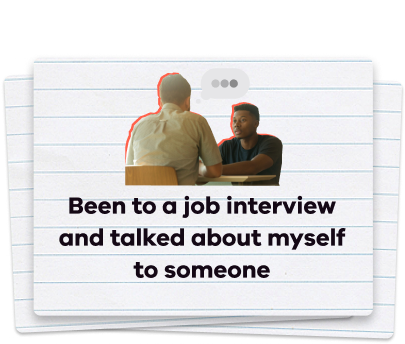There are two ways to approach the topic of job skills.
The first is the type of job skills all employers want you to have — teamwork, reliability, initiative, maturity and a willingness to learn. The second is skills in demand.
Skills in demand are when there are not enough people to do a particular job. Having the right skills in demand can often come with benefits like better pay.
When you’re applying for a job your job skills are the things you need to highlight on your resume and cover letter.
Here’s a bit more information about both types of skills.
Skills all employers want
General job skills are the things you need to be able to do a particular job.
For example, job skills for a plumber include being able to connect and weld pipes. To get these skills you will need to have had either the right training or the right experience, or sometimes both.
Sometimes a job skill will relate to direct training and experience but no matter what the job, employers want to hire people who have certain qualities and skills.
These are often called transferable skills because they are important to any job you do.
The type of transferable skills employers look for might be:
1. Employers want team skills
Being part of a team is a big part of getting a job, which means being able to get along, and work well, with other people.
You can get teamwork skills by being involved in school activities, doing work experience or volunteer work, or joining a sporting club.
2. Employers want reliable employees
This means showing you can:
- get to work on time
- do your job well
- stay in the job for more than a few weeks.
You can develop reliability by finishing things you start, and keeping your promises at home, school and at work.
3. Employers want initiative
Initiative at work means seeing things that need doing and doing them without being asked.
It’s also about doing that extra bit because you want to do a great job and trying to solve your own problems.
You can develop initiative by doing things without being asked at home and school.
4. Employers want maturity
Maturity is being able to take responsibility for your own actions. This can mean not blaming other people or making excuses.
It also means being able to listen to feedback about your work without taking it personally.
When you’re acting maturely you project a positive attitude at work. You’re friendly and approachable, and will happily do any task assigned to you.
Employers value maturity because they want:
- responsible staff who can work as part of a team
- staff who approach their work with energy and enthusiasm
- staff who can listen and express themselves clearly.
5. Employers want willingness to learn
This means being prepared to learn new things. It also means being interested in what you do, and looking for ways to improve.
Employers want staff who:
- are interested in their jobs
- make an effort to learn new things
- enjoy coming to work.
You can develop a willingness to learn by being curious. You could try setting a goal for yourself to learn something that interests you.
Skills in demand
When there are not enough people with the skills to do a particular job, the skill needed is called a ‘skill in demand’.
There are many reasons why some skills are in demand and some are not.
It might be because:
- there is a lack of skilled people in a certain part of the country
- people do not want to do some kinds of jobs
- there’s more demand for some kinds of goods or services than others
- technology has created new jobs.
Skills that are in demand can change over time. You might spend time training in a skill, only to find it’s no longer in demand when you finish training. That happens often, but it’s ok. Because most skills are transferable, your completed training is a great addition to your resume and experience.
Skills in demand can benefit your job search
If you’re looking for a job, it’s useful to have skills that are in demand.
This is because there will usually be more vacancies for people with those skills and wages and job conditions can often be better.
Knowing what skills are in demand can help you work out:
- what jobs to look for
- what training you could do to get those skills.
If you want a specific kind of job, finding out where demand is high for those skills could help you work out:
- where you need to look
- whether you need to move to improve your chances of finding that kind of job.
Find out what skills are in demand
The Australian Government keeps track of the skills in demand in Australia and publishes lists that show skill shortages in each state, which jobs are experiencing skill shortages and the prospects for work in various careers.

